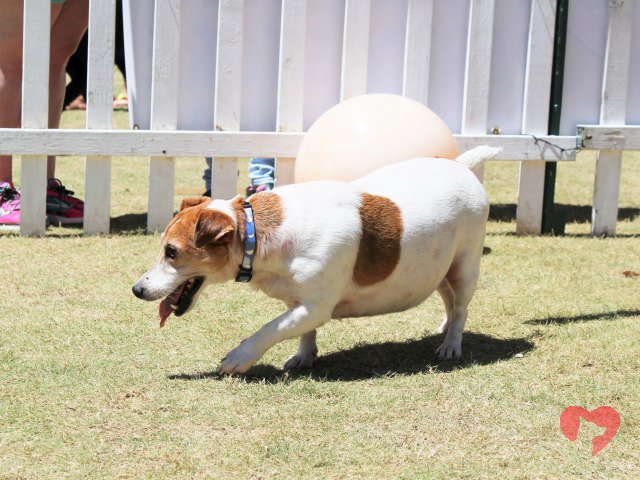We know that obesity shortens lives and impacts overall health. The trouble is that when you see your dog every day, it is hard to tell exactly what their perfect weight might be. Be aware that “ideal weight” for dogs is not a number on a scale because dogs come in so many shapes and sizes. Studies show that healthy-weight dogs can live an extra 2.5 years longer than their overweight counterparts.
Look at your dog with a critical eye. Since their body condition score has been proven to impact their longevity, it is important that you be objective. It isn’t cruel to call your dog “fat” if it’s true, and you have to know it is a problem before you can fix it. Here is how vets decide whether your dog is at a normal body weight:

Can You Feel Their Ribs?
When you press on their sides, can you feel their ribs? You should be able to. In fact, you should be able to palpate (feel) each individual rib. If you can’t, your dog has too much fat covering them. This is important, and to protect your dog, this is a parameter that should be checked and addressed.
Is Their Waist Visible?
Look at them from above and make sure that they have a visible waist where their body narrows behind their rib cage. When you look at them from the side, you should see a tuck for their waist from this view. Dogs with no tuck or transition from rib cage to abdomen are overweight. Your dog’s abdominal outline should be more triangular than rectangular.
Is There Excess Fat?
There should be no fat deposits over the hips and top of the tail. These areas are secondary storage areas for excess fat. Our companion pets should not need this much extra fat, and it is shortening their lives.

Is Their Abdomen Swollen?
Examine your dog critically as a veterinarian would. If their abdomen looks swollen, they could be obese. Be aware that there are other causes of abdominal distension, however. If your dog acts tired, sick, or has any unusual signs in addition to their abdomen looking distended, you do need to see your vet.
If you assess your dog’s body condition and find that your dog really does need to lose weight, you will need to make the diet plan in conjunction with your vet (much like you should consult your physician before beginning a weight loss program for yourself). As human dieters know, it is sometimes difficult to meet your nutritional needs while dieting, and all diets must be in conjunction with an exercise program that is appropriate for your dog’s age and health considerations. Making sure that your dog is at a healthy weight is an investment in his future.
